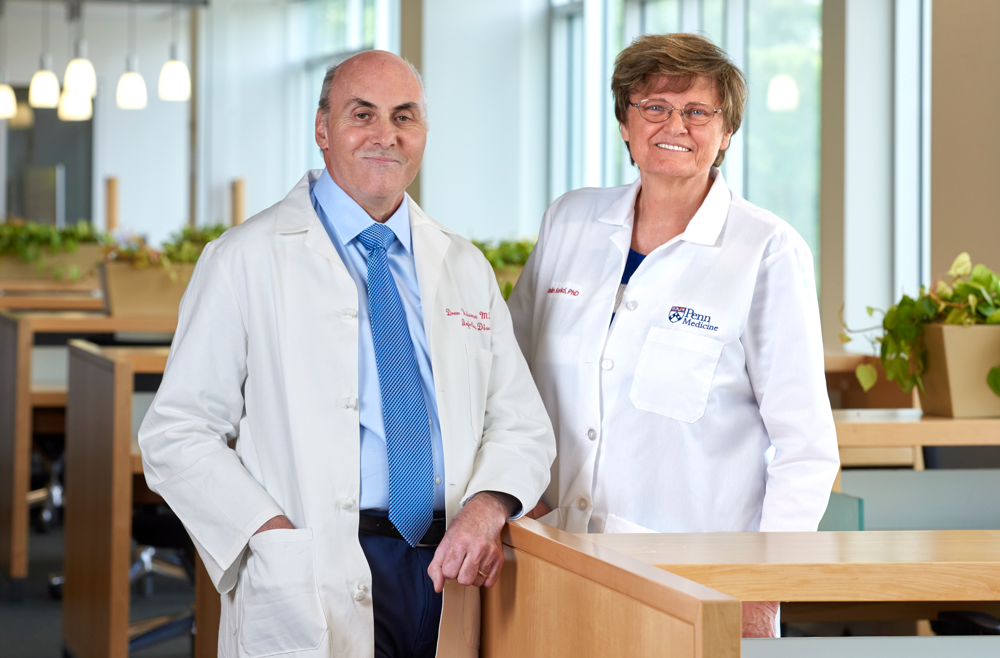This year’s Nobel Prize in medicine was awarded to Drs. Katalin Karikó and Drew Weissman for discovering the use of mRNA for vaccines. Their important discovery allowed the creation of the Pfizer-Biotech and Moderna COVID-19 vaccines, which according to Vox, “in the US alone… prevented over 3 million deaths and 18 million hospitalizations and saved more than $1 trillion.” Yet, the road to this groundbreaking research was paved with challenges and unnecessary hardships from universities and grant committees. If Karikó and Weissman hadn’t been as committed and hardworking as they are, the research needed to create the COVID-19 vaccine wouldn’t be available and there wouldn’t be millions of lives saved as a result. This brings up the questions of whether the current scientific grant system is good at what it does or whether it prevents future innovative research and what could improve this system.
Karikó immigrated to the United States in 1985 as a postdoctoral student in Philadelphia where she faced problems with deportation due to claims made by a coworker after she received a new job offer. She started working with the University of Pennsylvania in 1989 and was on a course to become a tenured professor, but her focus on mRNA was not seen as something important or fundable. For researchers, it is important to apply for grants for funding and “if you’re not doing research, you need to teach or work with patients.” But there are biases in the current grant system which make it harder for researchers to get grants, especially if they aren’t tenured or if they went to a foreign university. Grants are also given to research which is believed to be more important and profitable later on, and ideas such as Karikó and Weissman’s which don’t meet this standard are ignored and denied funding. Weissman and Karikó’s research also had a harder time of being published in larger, more well-known academic journals. It is astounding to think that if not for the grit of the two scientists, then the race to make a COVID-19 vaccine would’ve been even longer than expected, meaning thousands of more people could have been hospitalized or dead.
In 1995, Karikó was demoted by Penn and she joined Weissman’s lab which was also doing work with RNA, specifically how it relates to an HIV vaccine. This wasn’t the end of academic struggles as Penn made two patents and licensed Karikó and Weissman’s work from a small company they created called RNAx. Eventually, Penn kicked Karikó out and she was “forced to retire,” but she found a job at BioNTech which required her “commuting to and from Germany.” While the struggles Karikó and Weissman faced seems to make the victory of their Nobel Prize sweeter, it isn’t something that scientists should have to face to get their work funded or published. It is ironic that the University of Pennsylvania affiliates themselves with Karikó and Weissman’s victory despite all the struggles it put them through in their research.
While the current scientific grant system attempts to sort out which research is good for funding and has impact for the future, it has its disparities and blindspots, which is seen with Karikó and Weissman’s work. While the mRNA technology was deemed as something not significant for the future or worth funding, its use has ended up saving many lives during the pandemic, something which was unexpected. This shows how there has to be alterations to the system since it doesn’t seem to predict what research will have an impact in the future as well as it thinks it does. Additionally, the current system is rigid and prevents researchers from taking risks which could lead to world-changing discoveries in fear of not getting funding or being demoted. Getting grants also seems to be a biased process in which tenured professors and researchers who went to Ivy League universities seem to have an easier time getting grants than at other universities.
Possible alternatives to the grant system could include foundations or lotteries for research which have a harder time gaining grants. There should also be less emphasis in the grant system on punishing imperfect results or taking a long time to get results. Overall, this year’s recipients for the Nobel Prize in medicine shows the value of hard work and determination but also the pitfalls of the scientific grant system and the hardships of getting research published.
Saisha Islam, FCRH ’25, is a biology major from New York, N.Y.











































































































































































































